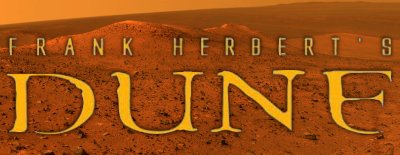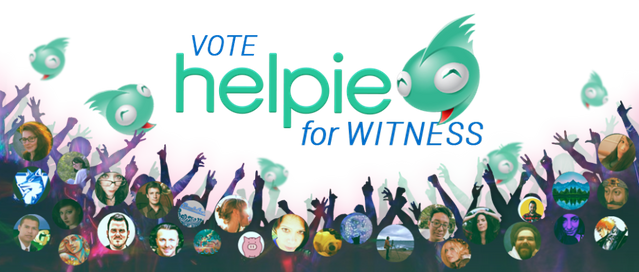Dune Immortal
I think a lot of you are like me, in the sense that we all have one book, or one film or poet, that we believe should be mandatory to learn about in school. Well, maybe not mandatory, but you know what I mean; it meant so much to us, we wish everyone to experience it for them self...

For me that's Dune. No question about it. I've learned more about humans, humanity, culture, religions, society, politics, philosophy, love, hate, manipulation, social engineering and almost every other aspect that defines and shapes our existence in the immeasurable universe, than in every lesson, lecture or documentary I've ever consumed. For me there's no better guide, no safer path to examining the complex beast that is humanity than this epic tale about the Atreides bloodline, spanning tens of thousands of years into our future. What follows may contain spoilers (no planning ahead here), so if you haven't read this saga yet (forget the movies and mini-series), i'd rather you leave and start with the novels right now; if you're at all interested in fantasy or science fiction, you won't regret it.
Frank Herbert got the idea for the first books in the American state of Oregon, were he was researching a magazine story about a US Department of Agriculture program to stabilize the shifting sand-dunes by introducing European beach grass. He got intrigued by this act of "terraforming", the engineering of the ecosystem to match human needs, on a micro-scale, and imagined what could be done on a planetary scale. The way humans inflict themselves on their environment, and it's consequences has become one of the book's main themes, among many others.
Dune starts ten thousand years after the Butlerian Jihad, or the Great Revolt, in which all "thinking machines" were destroyed; "Thou shalt not make a machine in the likeness of a human mind," was the resulting overruling law that has defined the human inhabited universe since. In the first novel we are introduced to a human kind with technology far superior to what we know now, but also very antiquated at the same time because of the complete absence of "thinking machines". Instead, humans have created, or developed through genetic manipulation and breeding over many generations, human computers, called mentat's who are capable of extraordinary feats of calculation and logical reasoning, surpassing even the computers and AI's of old.
"He who controls the spice, controls the universe." Can you imagine reading that as a teenage kid while consuming "the spice" through a freshly rolled joint? I have it from a reliable source that such an experience opens up the mind to the possibility that "oil" and "money" are our spice... But I digress. The balance of power in Dune's universe is a delicate one, and the constant struggle for power, as well as different ways power is attained, is another main theme in these novels. The Emperor rules absolutely over the known universe, with the Great Houses, noble families, as regional rulers; they answer directly to the Emperor. We are introduced to House Atreides right after the Emperor assigned rule over the planet Dune to them, replacing house Harkonnen, the nemesis of house Atreides and their complete opposite.
Duke Leto Atreides and his son Paul, the main protagonist of the first books, are universally beloved and are known to be righteous leaders who's first priority is the needs of their people. Baron Vladimir Harkonnen and his kin on the other hand, are so evil you might call them caricatures; they kill, rape and destroy without a second thought and exhibit a complete lack of human empathy. The Atreides family moves to Dune, the universe's only source of the Spice, not knowing that the Emperor and house Harkonnen have actually conspired and set a trap to get rid of Duke Leto Atreides; the Emperor feels threatened by Leto's growing popularity and power, so he uses house Harkonnen and their feud with the Atreides' to get rid of him.
Dune Trailer (1984) - This David Lynch directed film is in no way representative, but you might enjoy it nonetheless.
The balance of power in this universe is about to be disturbed, as the Emperor succeeds in killing Leto, but let his son Paul and his concubine Jessica, Paul's mother, escape into the endless deserts of Dune; they are presumed to be dead as no one could survive there and would be killed by either the burning sun or the invincible sand worms. The sand worms are the real rulers of Dune's desert with their near impenetrable skin, huge dimensions and rows of razor sharp teeth. Worms are also linked to the production of the all important spice Melange; they are the reason why Dune, or Arrakis, is the only planet where spice exists.
Spice has many properties that make it indispensable. In the Dune universe there are no exotic alien creatures to be found; all intelligent life is human or descendant from humans, humanoids. Paul's mother Jessica is a member of the Bene Gesserit, an all female sect that has been ruling from the shadows for millennia through their breeding program. They have extraordinary powers, the most remarkable of which is their use of "Voice" whereby they completely control another human being by just speaking the right words in the right tone of voice; I wonder if George Lucas got the idea for the "Jedi mind-trick" from these amazing females. At any rate, this social, religious, and political force in Dune's universe are key to understand the constant meandering of power-balance.
Jessica betrayed her sisterhood however; she gave birth to a son, where she had strict orders to bare only daughters. Bene Gesserit can manipulate their own body-chemicals to the extent that they can internally neutralize poisons and decide for themselves if they want to have a baby boy or girl. The Bene Gesserit needed Jessica to give birth to a girl as a crucial part of their search for the Kwisatz Haderach, a human being that could see into the future through prescience and see both male and female lives from the past. The Kwisatz Haderach would be able to look into the places where the Bene Gesserit dare not look, he would be a male with the sisterhood's ability to maintain an unbroken chain of past memories of all their maternal predecessors as well as the male predecessors.
For this ability to awaken, the Bene Gesserit need the spice Melange, Paul later in the story awakens his past memories by consuming an overdose of the substance, as it becomes clear that he is the Kwisatz Haderach. Frank Herbert shows us the dangers of mixing politics and religion, as well as the dangers of blindly following a charismatic leader through Paul's story. At the end of the first novel the indigenous people of Dune, the Fremen, already accept Paul as their Messiah, but in the second novel he'll be seen as a God almost and rapidly myths are formed around this man. Through his prescient vision Paul has seen this all coming and he knows that billions of people would come to deify him and that billions would be killed in his name; but he had to choose this "Golden Path" because the alternative would be humankind's annihilation.
A defining moment in the transformation from man to God in the eyes of his followers, was when he and many others were caught by an explosion which cost him his eyes. His eyeballs were completely burnt and all that remained were two empty dark eye-sockets. Yet, moments after the explosion he stands up and starts issuing orders, grabbing men by their arms while "looking" them straight in the eyes, pointing out wounded to be treated, in short, acting like he wasn't even aware that he just lost his eyes. By that point in the second novel, "Dune Messiah", his prescient vision was developed so good, that he just knew everything that was happening and was about to happen. This struck al bystanders with awe and fear, the quality of a true God.

source: io9
The third book, "Children of Dune", culminates in the ascension of Paul's son, Leto the Second, to God-hood by him becoming one with Dune's sand worms. He literally gives up his humanity to become the sole God Emperor in the universe to "gift" humanity eternal peace and quit during his 4000 year reign. In "God Emperor of Dune" we get the chance to see humanity from the perspective of someone who's bored to death because he cannot die and knows everything there is to know and happen, knowing he can't change anything about it. His peace is a forced one, in which human development stagnates, and acts as a "lesson" to humankind necessary to protect them against what he knows is coming in about 1500 years after his death; even Gods don't live forever, nothing does, and that's a good thing, another important thread in this saga.
But the saga itself might prove to be immortal. I barely scratched the surface of this story, believe me. Past attempts to capture the universe of Dune on film have failed miserably, but I am excited about the Dune project going on right now with Denis Villeneuve, the director behind recent science fiction masterpieces Arrival and Blade Runner 2049, at the helm.
Denis Villeneuve has confirmed that his adaptation of Dune will be split into at least two films, in order to ensure that the original story would be "preserved and not cut into a million pieces."
source: IMDB
That's already encouraging as I see no way this can be truthfully adapted on the big screen in just two and a half hours. However good this film may turn out to be, there's no substitute for the six original Frank Herbert novels: Dune, Dune Messiah, Children of Dune, God Emperor of Dune, Heretics of Dune, and Chapterhouse: Dune. Unfortunately Frank Herbert dies before he could write the conclusion, so we never learn exactly what or who the great danger to humanity was that Leto the Second foresaw. His son, Brian Herbert found some notes his father made about Dune, and teamed up with sci-fi writer Kevin J. Anderson in an attempt to complete the series:
[Brian] Herbert is known for his collaborations with author Kevin J. Anderson, with whom he has written multiple prequels to his father's landmark 1965 science fiction novel, Dune, all of which have made the New York Times Best Seller list. The duo began with the trilogies Prelude to Dune (1999–2001) and Legends of Dune (2002–2004). Brian and Anderson next published Hunters of Dune (2006) and Sandworms of Dune (2007), two sequels to Frank Herbert's original Dune series after his 1986 death, which was left incomplete at the end of Frank's sixth Dune novel, Chapterhouse: Dune. These novels are based on an outline and notes left behind by Frank Herbert for what he referred to as Dune 7, his own planned seventh novel in the Dune series.
source: Wikipedia

source: Pinterest
I never read the preludes to Dune, but I did read Hunters of Dune and Sandworms of Dune; they are not in the same style as the original series but are enjoyable for what they are, and they give us a more satisfying end, is my opinion. But there are a lot of Dune fans that don't like these at all, so that's something you'll have to decide for yourself. And please do decide for yourself; I can honestly say that reading Dune has been a defining moment in my life and that never since I've experienced a story so rich in everything attached to the "human condition", not even Nineteen Eighty Four, The Lord Of The Rings or anything else I've seen, heard or read. The first Denis Villeneuve film is still in pre-production, so I reckon there's at least a year left before we see anything substantial about it; take that time, my friends, to consume the books if you haven't already.
Thanks so much for visiting my blog and reading my posts dear reader, I appreciate that a lot :-) If you like my content, please consider leaving a comment, upvote or resteem. I'll be back here tomorrow and sincerely hope you'll join me. Until then, keep steeming!

Recent articles you might be interested in:

Thanks for stopping by and reading. If you really liked this content, if you disagree (or if you do agree), please leave a comment. Of course, upvotes, follows, resteems are all greatly appreciated, but nothing brings me and you more growth than sharing our ideas. It's what Steemit is made for!


Just for Full Disclosure, I'm invested in these crypto-currencies:
Bitcoin | Litecoin | EOS | OmiseGo | FunFair | KIN | Pillar | DENT | Polymath | XDCE | 0x | Decred | Ethereum | Carmel | XYO

@helpie is a WITNESS now! So please help @helpie help you by voting for us here!

Congratulations! Your post has been selected as a daily Steemit truffle! It is listed on rank 18 of all contributions awarded today. You can find the TOP DAILY TRUFFLE PICKS HERE.
I upvoted your contribution because to my mind your post is at least 5 SBD worth and should receive 109 votes. It's now up to the lovely Steemit community to make this come true.
I am
TrufflePig, an Artificial Intelligence Bot that helps minnows and content curators using Machine Learning. If you are curious how I select content, you can find an explanation here!Have a nice day and sincerely yours,

TrufflePigHave a nice time ... from SEOUL.
I am not a books reader but you sound interesting 👍
Posted using Partiko Android
Thanks @mediawizards! I don't read as much anymore nowadays, as I've discovered that audio-books are a real treat :-) It's convenient and the story gets enriched with sometimes different voices for the characters and some light music and sound-effects to make the experience even more immersive... Maybe try listening instead of reading... Or, hope for the best and wait for the films 😋
Hi @zyx066!
Your post was upvoted by @steem-ua, new Steem dApp, using UserAuthority for algorithmic post curation!
Your UA account score is currently 3.557 which ranks you at #5970 across all Steem accounts.
Your rank has improved 99 places in the last three days (old rank 6069).
In our last Algorithmic Curation Round, consisting of 280 contributions, your post is ranked at #96.
Evaluation of your UA score:
Feel free to join our @steem-ua Discord server